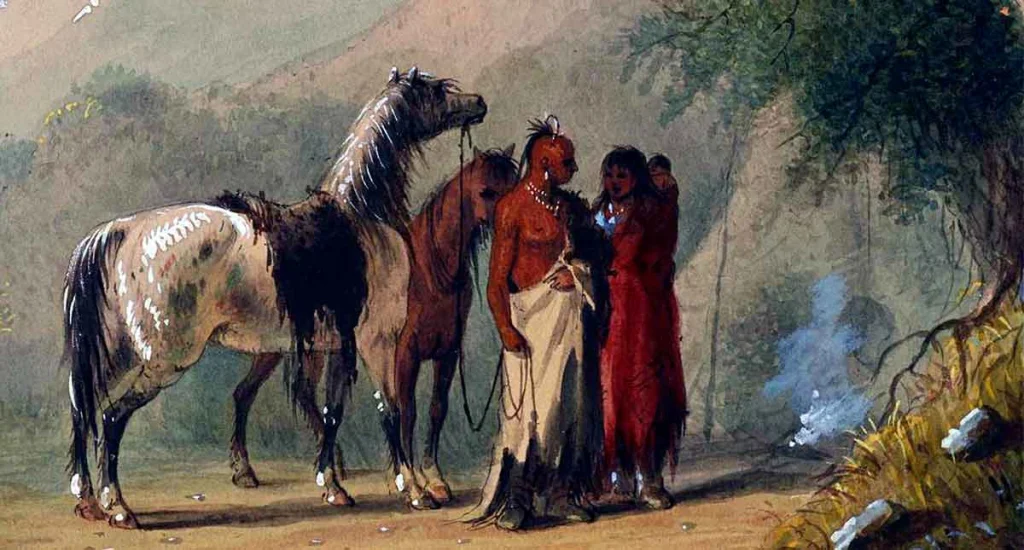He rode a gray horse, wore a wide-brimmed black hat, and carried twin Colt revolvers. His reputation traveled faster than a bullet, and in the lawless lands of the American frontier, his name stirred both fear and respect. But what made Bass Reeves truly legendary wasn’t just that he arrested over 3,000 outlaws—it was who he was, and where he came from.
Bass Reeves was born into slavery in 1838, likely in Arkansas. He belonged to a wealthy landowner named William Reeves, who later moved to Texas. Bass grew up in bondage, toiling in fields and stables, denied freedom, education, and dignity. But deep within him, something stronger than the chains was taking root.
That something would, in time, make him one of the greatest lawmen the American West had ever seen.
The Escape That Changed Everything
When the Civil War broke out, William Reeves joined the Confederacy—and took Bass with him to fight. But Bass saw in the chaos of war a chance to seize something that had been denied him all his life: freedom. During an altercation—some say over a card game, others suggest it was a beating—Bass escaped and vanished into the Indian Territory, now Oklahoma.
He lived among the Cherokee, Creek, and Seminole tribes for several years. There, he learned not only their languages but their customs, hunting skills, and tracking techniques. This knowledge would later become one of his greatest assets.
When the Thirteenth Amendment abolished slavery in 1865, Bass was a free man by law—but already one in spirit.
Lawman of the Wild Territory
In 1875, Isaac Parker, the infamous “Hanging Judge” of Fort Smith, Arkansas, was looking for deputies to tame the unruly Indian Territory—a haven for outlaws, murderers, and fugitives. Most white lawmen didn’t last long there. But Bass Reeves was a perfect fit.
He could speak multiple Native languages. He knew the land better than most. And he had a mind like a steel trap. So, despite being unable to read or write, he was sworn in as a Deputy U.S. Marshal.
He was the first Black deputy marshal west of the Mississippi.
Over the next three decades, Reeves rode across nearly 75,000 square miles of treacherous territory. He faced gunmen, horse thieves, bootleggers, and killers. But Reeves had an uncanny knack for survival—and for justice.
He would often disguise himself: as a farmer, a cowboy, even a preacher. One story tells of him posing as a beggar, hobbling into an outlaw hideout, only to pull a revolver from a sling and arrest his targets before they could blink.
Legend of the Frontier
Bass Reeves didn’t just catch criminals—he hunted them with precision.
He brought in over 3,000 men and women during his career, many of them dangerous and well-armed. He killed at least 14 in self-defense. He was never wounded, though his belt and hat bore the scars of bullets that came too close.
But what set Reeves apart wasn’t just his courage—it was his unshakable moral code. He once arrested his own son, who had been charged with murder. Reeves said the law was the law. No exceptions.
Another time, when a warrant was issued for a close friend, Reeves insisted on taking the job himself. “I’d rather bring him in than let someone else kill him,” he said.
In an age when corruption and racism infected every corner of public life, Reeves stood as a man of principle, feared by outlaws and trusted by judges.
More Stories
Fading into History—But Not Forgotten
Reeves retired in 1907, after Oklahoma gained statehood. He lived the rest of his life as a city police officer in Muskogee. Though he had once patrolled the vast, wild frontier, he now walked city streets. He died in 1910, nearly forgotten by a country that had never fully acknowledged his greatness.
But in recent decades, his name has surged back into the spotlight. Some historians believe Bass Reeves may have inspired the fictional Lone Ranger. His life, once buried under the weight of racial prejudice and historical amnesia, now gleams as one of the truest American stories.
A man born a slave became a symbol of justice.










































